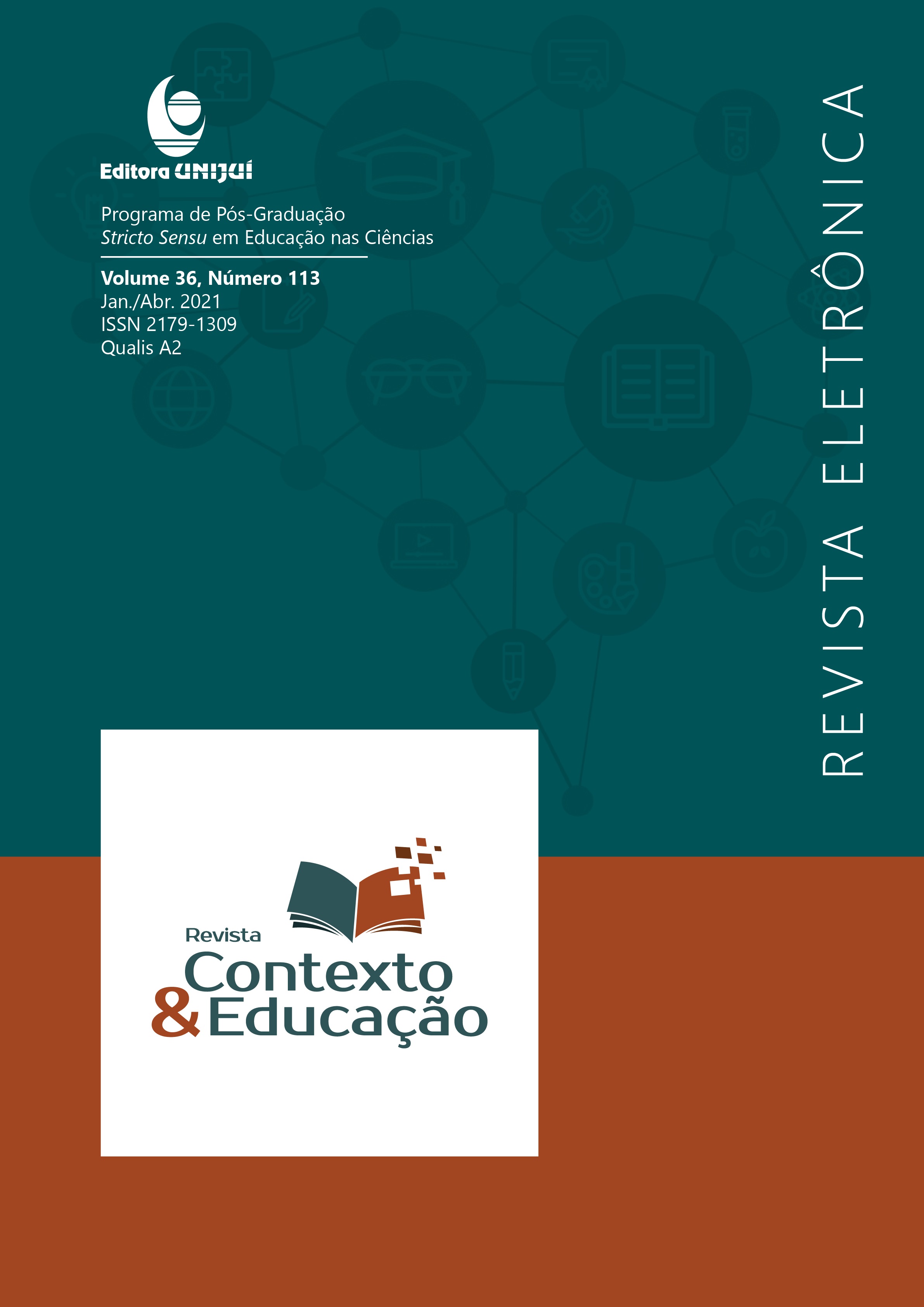INVESTIGAÇÃO DIALÓGICA NA SALA DE AULA DE CIÊNCIAS: ETNOPESQUISA-FORMAÇÃO COM PROFESSORES DE CIÊNCIAS DA NATUREZA
DOI:
https://doi.org/10.21527/2179-1309.2021.113.143-162Resumo
O artigo apresenta compreensões de uma etnopesquisa-formação com professores, acerca da investigação dialógica na sala de aula de Ciências. Abrange a constituição do campo empírico, delimitada a análise de 43 relatos produzidos por professores do campo da Ciências da Natureza (Química, Física, Biologia e Ciências) em formação nas edições dos anos 2016 e 2017 do projeto de extensão CIRANDAR, desenvolvido em uma Universidade Pública Brasileira em parceria com Escolas de Educação Básica. Constitui-se a análise a partir da linguagem expressa nas produções textuais, com base na questão norteadora do estudo o que é isso que se mostra da investigação nos relatos dos professores de Ciências em formação no CIRANDAR? Assume-se a etnopesquisa-formação em uma abordagem fenomenológica hermenêutica como meio de construção epistemológica. As informações foram analisadas seguindo os princípios da Análise Textual Discursiva (ATD), em que emergiram quatro categorias finais. Neste texto, apresentamos compreensões referentes à categoria IV) Investigação dialógica na sala de aula de Ciências em que a investigação dialógica é assumida pelo coletivo de professores analisado, como estratégia didático-pedagógica desencadeada pela problematização, com questionamentos dos estudantes e professores ao operar, de forma coletiva, informações e linguagem científica no constituir, negociar e comunicar significados na sala de aula de Ciências.
Downloads
Publicado
Como Citar
Edição
Seção
Licença
Ao publicar na Revista Contexto & Educação, os autores concordam com os seguintes termos:
Os trabalhos seguem a licença Creative Commons Atribuição 4.0 Internacional (CC BY 4.0), que permite:
Compartilhar — copiar e redistribuir o material em qualquer meio ou formato;
Adaptar — remixar, transformar e criar a partir do material para qualquer fim, inclusive comercial.
Essas permissões são irrevogáveis, desde que respeitados os seguintes termos:
Atribuição — os autores devem ser devidamente creditados, com link para a licença e indicação de eventuais alterações realizadas.
Sem restrições adicionais — não podem ser aplicadas condições legais ou tecnológicas que restrinjam o uso permitido pela licença.
Avisos:
A licença não se aplica a elementos em domínio público ou cobertos por exceções legais.
A licença não garante todos os direitos necessários para usos específicos (ex.: direitos de imagem, privacidade ou morais).
A revista não se responsabiliza pelas opiniões expressas nos artigos, que são de exclusiva responsabilidade dos autores. O Editor, com o apoio do Comitê Editorial, reserva-se o direito de sugerir ou solicitar modificações quando necessário.
Somente serão aceitos artigos científicos originais, com resultados de pesquisas de interesse que não tenham sido publicados nem submetidos simultaneamente a outro periódico com o mesmo objetivo.
A menção a marcas comerciais ou produtos específicos destina-se apenas à identificação, sem qualquer vínculo promocional por parte dos autores ou da revista.
Contrato de Licença (para artigos publicados a partir de outubro/2025): Os autores mantém os direitos autorais sobre seu artigo, e concedem a Revista Contexto & Educação o direito de primeira publicação.


